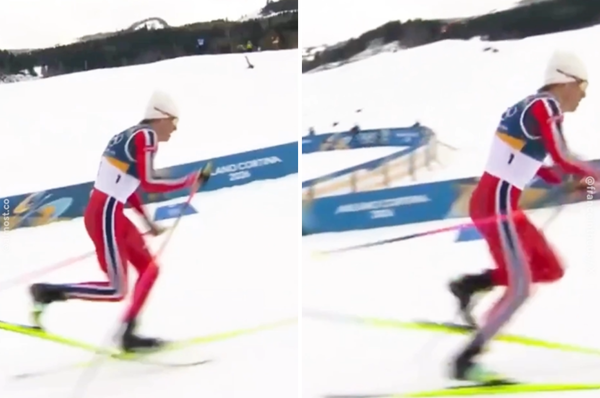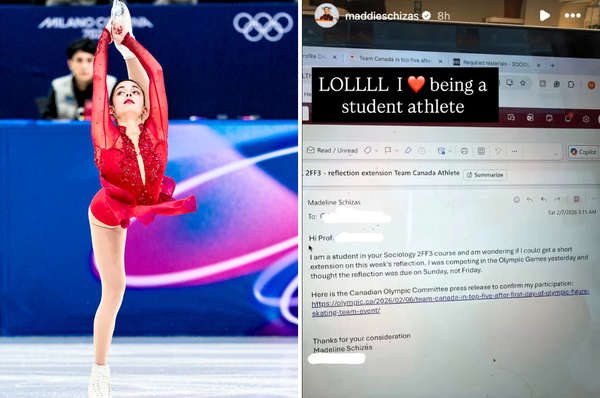Several Australian Women Said They Were Raped By Conservative Party Politicians And People Are Furious
Thousands of women in Australia took part in the March 4 Justice demonstrations across cities to protest against the mistreatment of women after several rape allegations involving members of the conservative government.
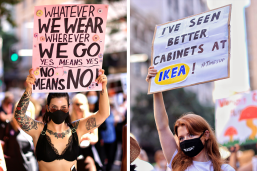
Tens of thousands of people across Australia gathered on the streets to march against violence against women on Monday Mar. 15.
The marches occurred in at least 40 cities following two separate rape allegations involving members of Australia’s parliament, as well as the murder of Sarah Everard, a woman in the UK.
The protests come a week after Attorney General Christian Porter revealed he was the man named in one of the cases – a historical rape allegation involving a sitting federal cabinet minister who allegedly raped a 16-year-old girl in 1988 – and denied the accusations.
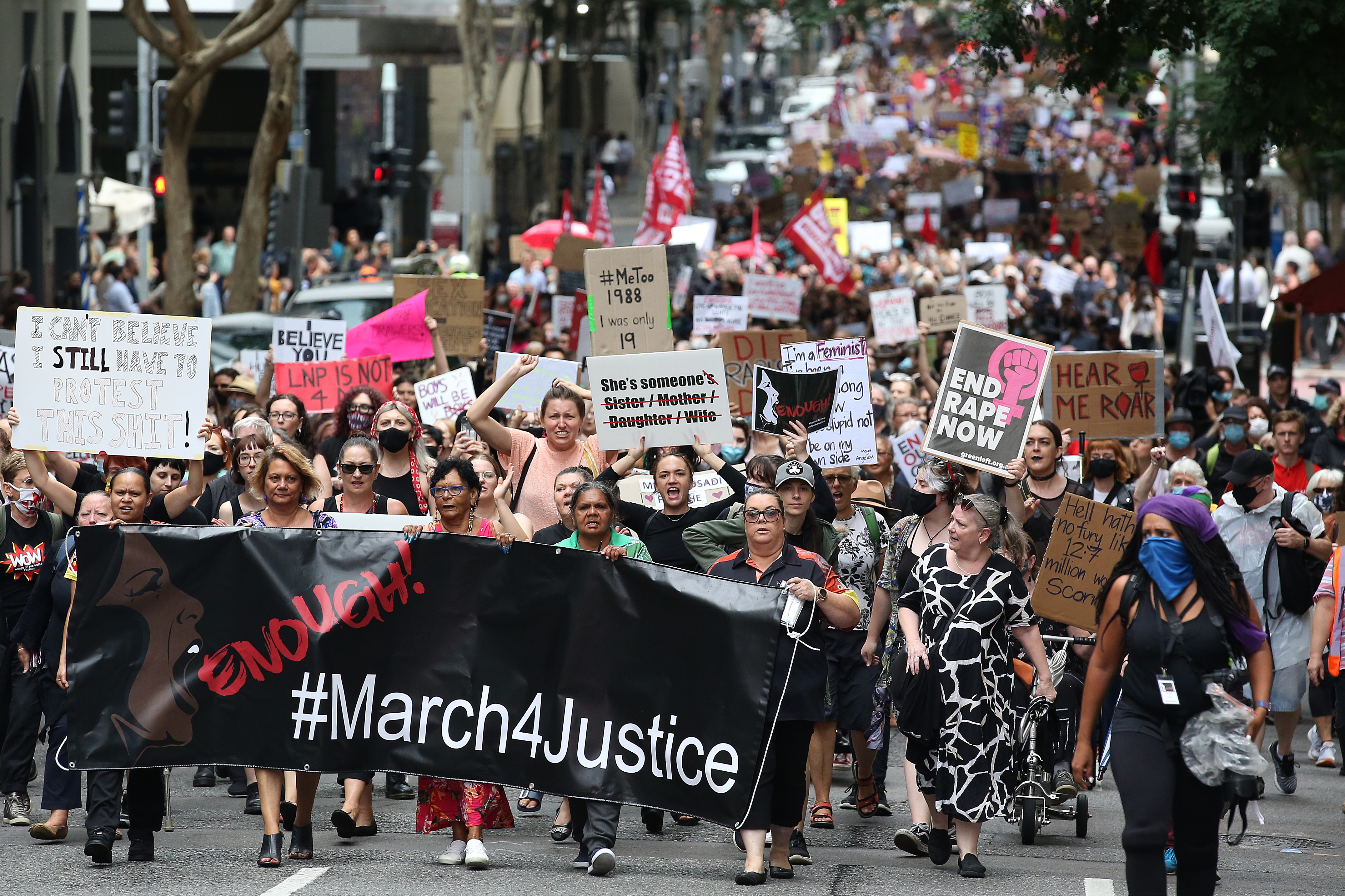
The woman had gone to the police last year, but the investigation was suspended after she killed herself in June, SBS News reported. The case was closed on Mar. 2 by police, who said there was “insufficient admissible evidence to proceed.”
A day later, Porter announced that he was the person named in the allegations, confirming he had met the woman in Sydney when he was 17 but denying the claims, according to ABC News. He then announced he would be taking “a short period of leave” to look after his mental health.
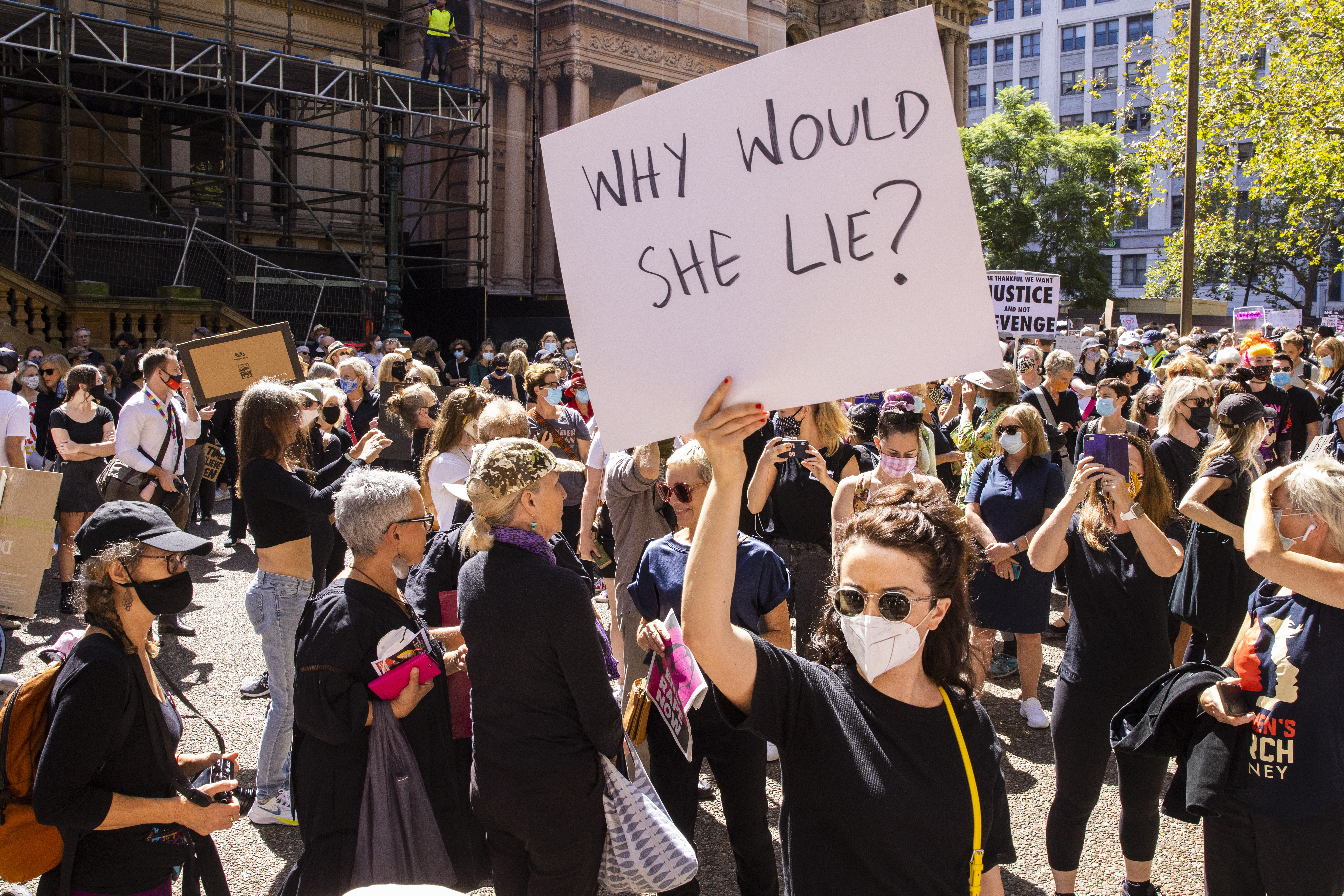
In a separate case, Australian media news.com.au and The Project reported on Feb. 15 that Brittany Higgins, a former political advisor, said she had been raped by a male colleague in a minister’s office in 2019. Higgins said she had gone to the police but dropped the complaint in April 2019 as she was worried it would result in her losing her job, according to the New York Times. After Higgins went public, another three women said they had also been sexually harassed and assaulted by the same man between 2016 and 2020, according to SBS.
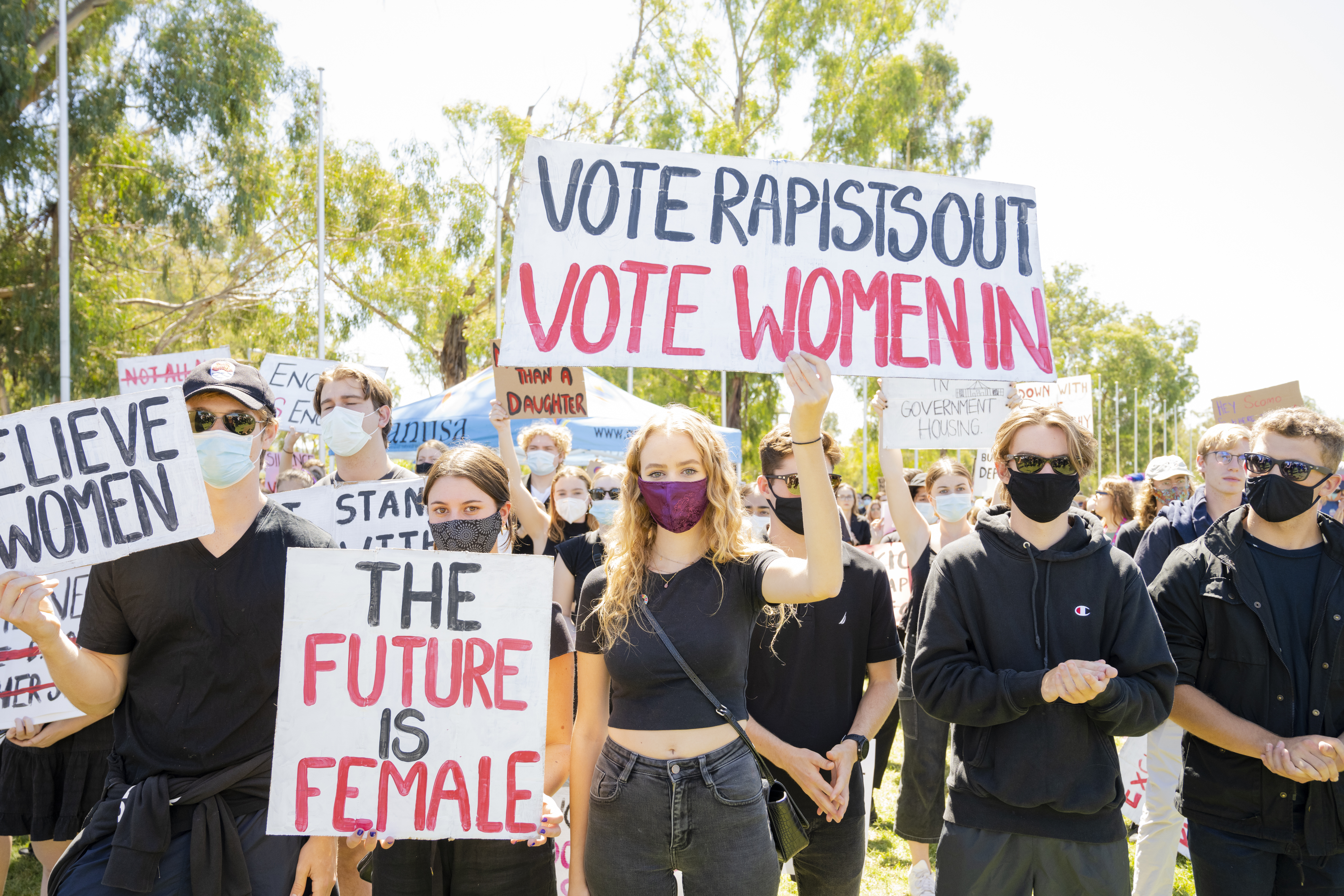
On Monday, about 110,000 people showed up to the demonstrations around the country to protest a problem that has “gone unnoticed for far too long,” organizers said, according to the New York Times.
Protesters in Melbourne held a banner that listed the names of women who had been killed from gender-based violence since 2008, while the more than 5,000 people demonstrating outside Parliament House at Canberra, Australia’s capital, presented two petitions to lawmakers demanding change.
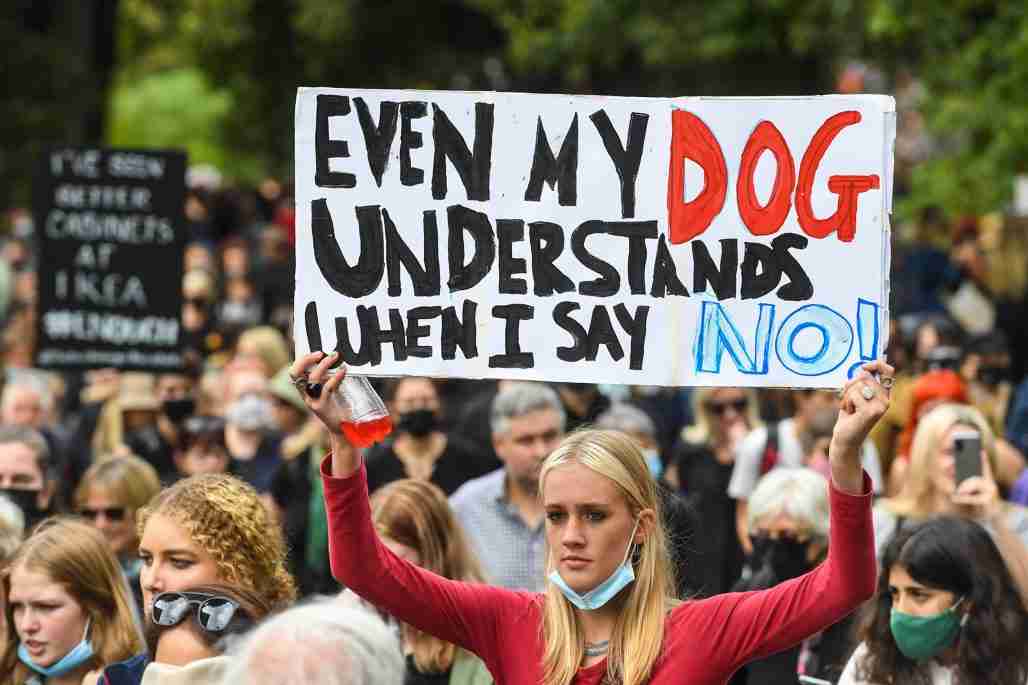
“There are huge numbers of women around the country that have had enough, quite frankly, of their appalling response to sexual assault and harassment. We want change and we want it now,” organizers said, according to the New York Times.
Appearing at the Canberra march, Higgins said her story was on the front page “for the sole reason that it was a painful reminder to women that if it can happen in Parliament House, it can truly happen anywhere.”
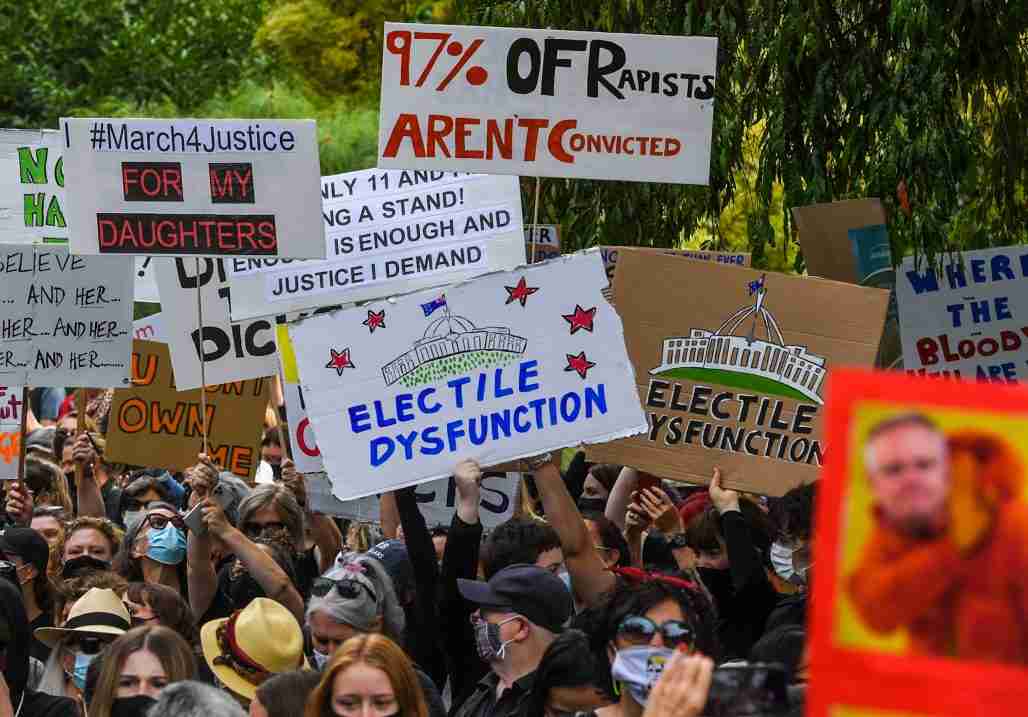
Prime Minister Scott Morrison declined to join the protests and instead called for a meeting with a small group of organizers. The organizers denied his request on Twitter saying, “We have already come to the front door, now it’s up to the government to cross the threshold and come to us. We will not be meeting behind closed doors.”
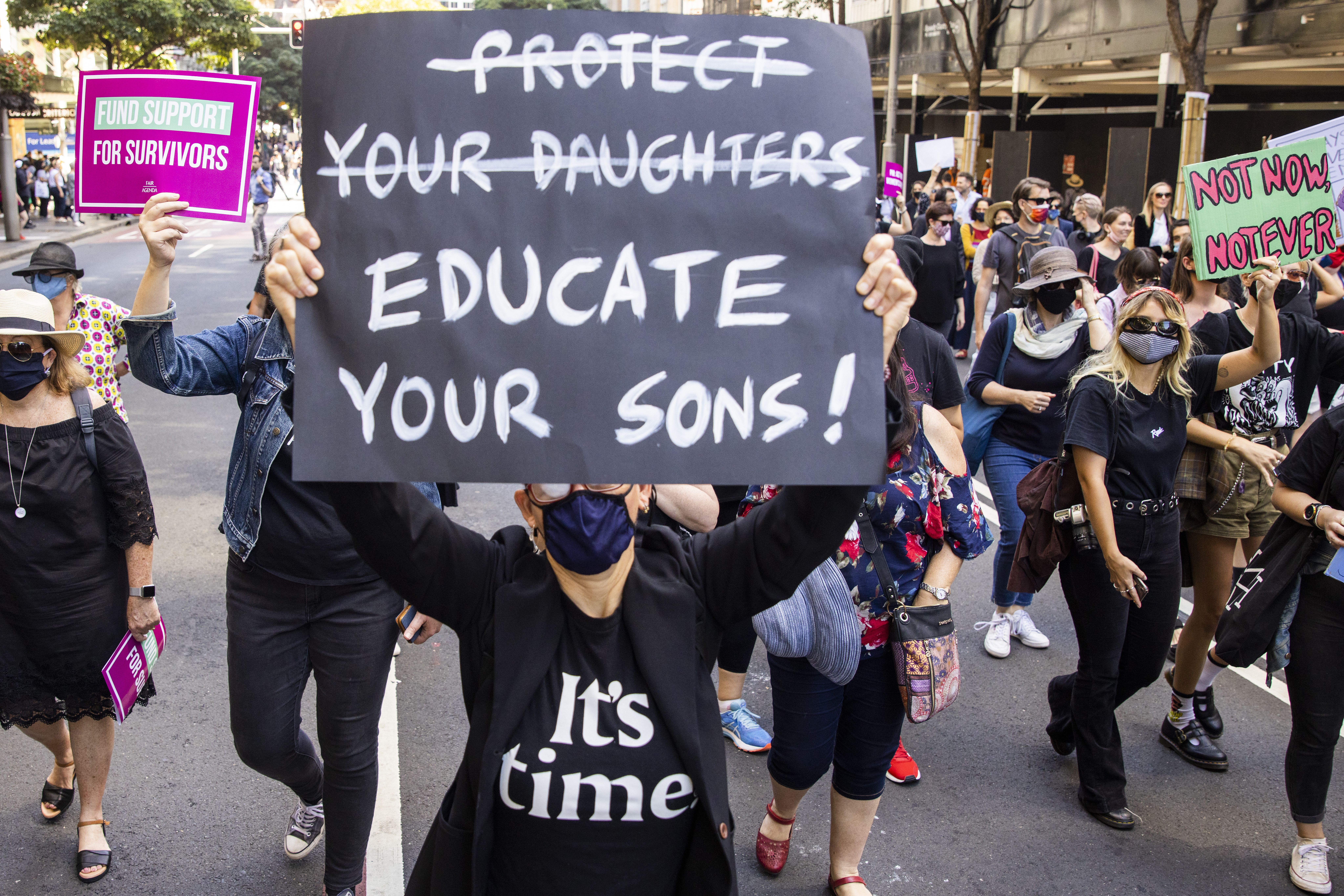
Morrison, who has come under criticism for his handling of the situation, told parliament that the government “understands and shares the frustrations of women and men across the country” but added that “We must not let our frustration with the failure to achieve so many of the results we would hope for to undermine the unity needed to continue our shared progress.”
Australia is expecting to hold its next federal election before May 2022.


